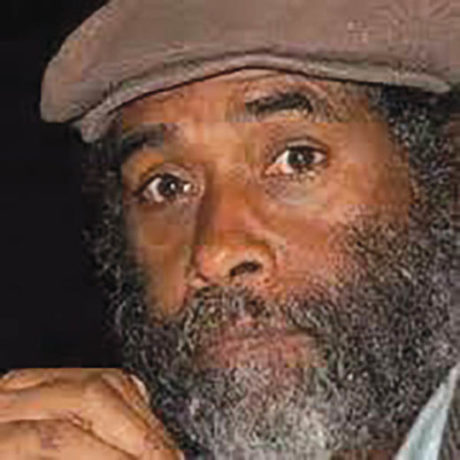By DWIGHT HOBBES
A article in the series: Something I Said

His Name Is George Floyd: One Man’s Life and the Struggle for Racial Justice (Viking Press – 2022) is a strong, Pulitzer Prize winning read by Washington Post staffers Robert Samuels and Toluse Olorunnipa. One cannot read this book with your mind already made up. The authors neither fit Floyd for a halo nor do they demonize him. Without letting him off the hook, they place the man in compelling context, calling Houston’s and Texas’ criminal justice system out for their part in his unwitting, hellbent self-destruction.
Nothing is simple about enduring institutionalized racism, particularly the truism, White folk are responsible for racism, but, we are accountable to deal with it. Like a lot of African American parents, Larcenia warned her son George that he was born with two strikes against him. Some of us make that third strike count. Most don’t.

George Floyd was a decent sort, who, when he didn’t have bad luck, pretty much made poor choices. Like many black neighborhoods, there were two ways aside from, for instance, flipping burgers or swinging a mop, to beat life on Houston Ward streets – sports and entertainment. Floyd took a shot at each and actually had skills first with a basketball scholarship to South Florida Community College then with a stint rapping on Houston’s Chopped ‘N’ Screwed, most notably with local luminary DJ Screw. Both were short-lived successes. At one point, after moving to Minneapolis for a fresh start, he worked double shifts downtown at the Salvation Army, while qualifying for a Class A license to drive trucks. It didn’t pan out. Other things never quite panned out, principally getting and staying on the right side of law and enforcement. Between several periods of productivity, he popped pills, smoked weed and sold crack on the corner. That last piece, peddling to undercover cops, drew longer sentences at each conviction, until a five-year stretch sealed the deal against making a legal living.
From there, it was business as usual for the system. As Richard Pryor quipped, “If you come down to the jail looking for justice, that’s what you’ll find: just us.”
The authors note this George hadn’t done anything more to be saddled with a criminal record than had another George whose last name happened to be Bush. They point out that in 2002, “Many state legislators began reversing the harshest drug laws…Texas opted to stay the course.” That course ran right over Black men’s lives. “Throughout his history with the Texas criminal justice system, Floyd never faced a jury of his peers, instead accepting plea deals.” Eight lopsided guilty pleas. Including one that cost him seven months for $10 worth of crack. The last one was for five years.
One-time girlfriend Courtney Ross, flatly stated, “I’ve done drugs. I’ve sold drugs. The reason he has a record is that he’s a Black man and the reason I don’t is because I’m a White woman and that’s as real as it gets.”
By the time Derek Chauvin knelt on George Floyd’s neck, the murder amounted to one ruthless cop executing a racist death sentence on behalf of an entire system. Long before he died, Floyd’s proverbial right to life, liberty and the pursuit of happiness was curtailed. Chauvin finished him off.
Henry Louis Gates, Jr. and CNN anchor-senior political correspondent Abby Phillip are among those who glowingly sign off on this candid statement on alleged social progress, including The Associated Press and People, which called it “A full, nuanced picture of the man whose murder sparked a movement.” That picture references such familiar Twin Cities figures as Turning Point founder-director Peter Hayden, Nekima Levy Armstrong and Michelle Gross of Communities Against Police Brutality. Ultimately, the chilling truth is George Floyd was something of an every Black man in that without a suit and tie, you indeed have two strikes against you. And can’t afford to not let the last one count.
Dwight Hobbes is a long-time Twin Cities journalist and essayist.









